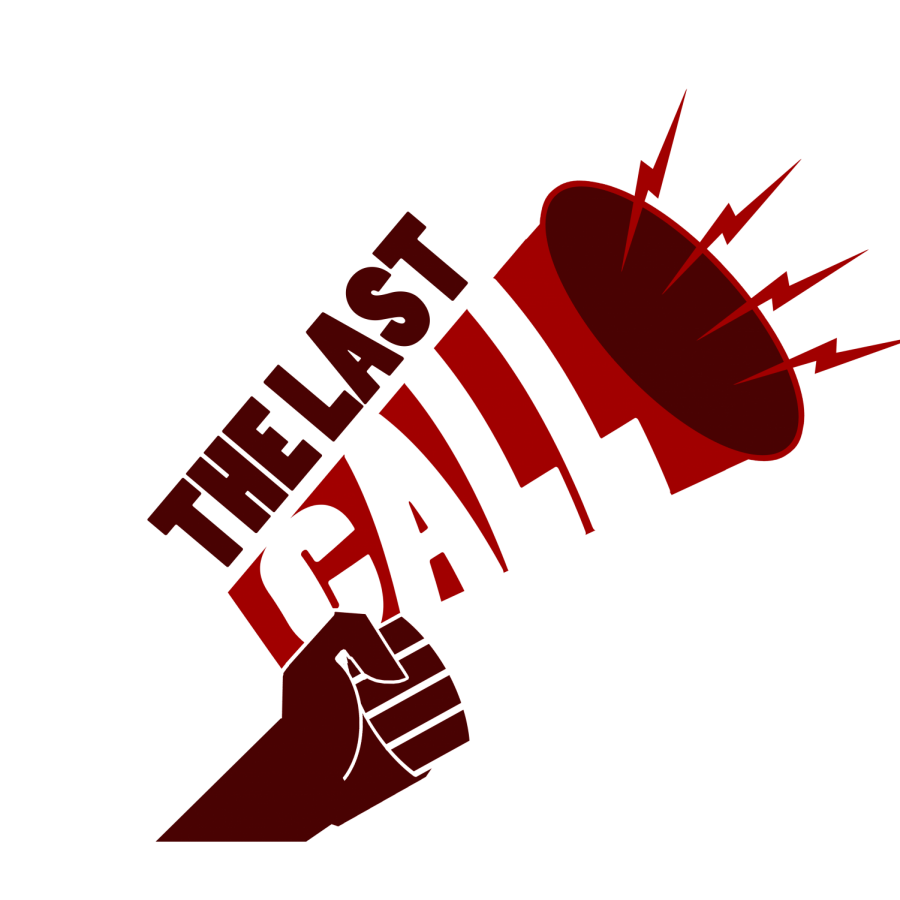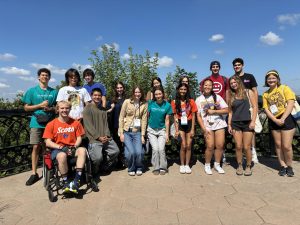The Last Call: Decolonizing academia — what is the point of higher ed?
September 26, 2019
I recently attended a dance performance titled “Sutrajaal: Revelations of Gossamer” at St. Catherine University. It was a beautiful show that depicted a “Broken City” once populated by diverse and aspiring individuals whose culture have been stripped away by the development of what they referred to as “Shiny City.” Throughout the piece, you see the lives currently being lived by the show’s characters being contrasted with the lives they once lived. This was at times overwhelming to watch. It was overwhelming to see the shift in comfort and happiness within each dancer as they moved between present and memory. It was overwhelming to witness their present being a city of uniformity with only small pockets of cultural happiness and authenticity. And finally, it was overwhelming to leave the theater and feel as if parts of that show were carried over into parts of my reality and that of many others.
Within the system of higher education, it can be difficult to retain parts of an identity that do not align with its standards. And at institutions that place an emphasis on their diversity and inclusion, holding on to those parts of your identity is often paired with tokenism, exoticism and lingering discrimination. Being part of a college is a process of assimilation in which individuals (individuals including members of the administration, faculty and staff, students, etc.) must adhere to the standards of “proper” academia which were founded on colonial ideologies. If you possess a marginalized identity, especially one that is racially and ethnically marginalized, this makes your first few years at an institution like Macalester difficult because you are not just learning course materials, you are learning how to appropriately learn within a system that was not made for you.
For those whose native tongue is not English, for those impacted by educational inequality rooted in racial and economic disparity, for those whose families are not familiar with the education system, for those who come from instability, for those who have been historically and still are oppressed, for those whose educational background is not rooted in European, American or Westernized systems and for those whose educational background comes from within those systems at the cost of the deletion of their culture — we are told that being accepted into the system of higher education is a gift. And it is a gift I will forever be thankful for. But that gratitude is embedded in the notion that my culture and identity are not sufficient enough to stand alone within the context of higher education. They must be accompanied by formal and informal lessons on language and etiquette that will help mold me into an acceptable, tolerated version of myself.
Assimilation and colonialism within academia is not a new concept. At one point, it may have been new to us individually, but it is not one that is new at established institutions such as Macalester. And although this idea existed prior to the establishment of Macalester, it has been ignored within this institution and those similar to it for the majority of their respective existences. This ignorance has recently been combated by efforts to incorporate racial and ethnic ideologies into the classroom. I do not mean incorporate by accepting more students or hiring staff with marginalized identities — which in itself has not been so great as only 31% of the entire student body are Black, Indigenous and People of Color (BIPOC) and the percentage of non-cis, white professors is even less. I mean incorporate by creating spaces within academia that are catered to “ethnic studies,” the development of departments such as African, Asian or Latin American studies. Although the creation of these departments has been beneficial in acknowledging that these identities matter within the world of higher education, they themselves, as professional studies, are often discredited as proper, dignitary forms academia. The creation of these departments does not directly provide inclusivity within Macalester, rather at times they serve as glorified spaces for students who do not have those identities to temporarily sit and think about colonialism and whiteness in an unfamiliar context. And the comfort of students with these identities taking classes trying to learn more about their history and culture is not prioritized; their identities and experiences become props in the classroom that aid the learning experience of other students and the professor.
It is exhausting, really. I am a political science and international studies major, and the foundational courses for both majors are taught through the perspective of white theorists. Is Macalester to blame for the general standardization of theorists like John Locke or Thomas Hobbes — not directly, no. However, they are complicit in the continuation of this standardization through the classes they offer and people they include to be part of their community. This isn’t to say I haven’t enjoyed my classes or am not grateful to my professors, I truly am. However, there are moments in which I am sitting in a classroom listening to students theorize about my history, my identity, and I am forced to allow them to interpret the experiences of my people. For others, this is a learning experience where they are able to detach themselves from what is being taught in the classroom. It is difficult for them to accept that what we are forced to learn is essentially their history, it is not an optional course aimed at promoting internationalism. There is innate oppression in the ways we are taught through what we are taught. What we are taught reinforces the colonial structure of academia and is excused by the inclusion of works created by non-white authors who are mostly praised for their ability to exist and create while being non-white. And it is this phenomenon that goes beyond the world of theory and literature, carrying itself into parts of academia that are STEM-based; it is this phenomenon that is carried into the way BIPOC faculty and students are treated within the education system. We are praised for being able to adapt and exist within this institution that was not meant for us, and we are shut down when we seem ungrateful for those small pockets of “cultural authenticity” allowed by the institution. But calling out an institution for not doing enough or implicitly partaking in these colonial ideologies is not synonymous with ungratefulness. I, as well as many of those who are part of this system, know that things on this campus could be worse. However, “because they could be worse” does not excuse us from trying to systematically and authentically make them better.
“The Last Call” is written by Prof. Karín Aguilar-San Juan, Anni Clark, Mandy Ortiz and Shireen Zaineb. It appears each week on the backpage of The Mac Weekly.












